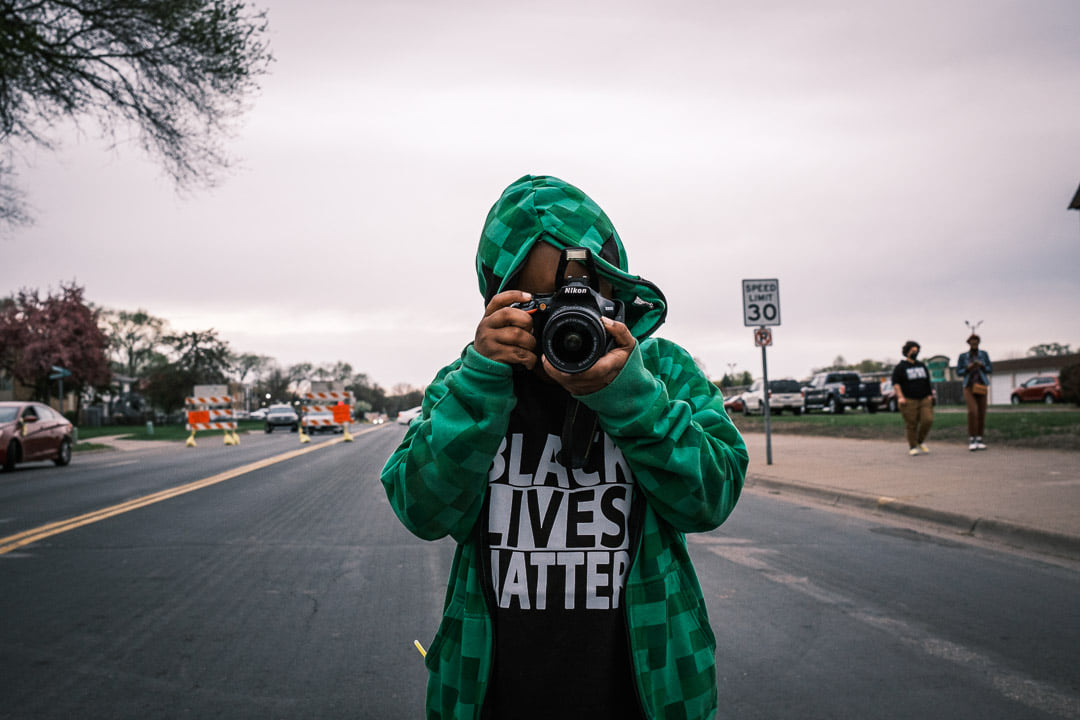Two former Minneapolis police officers charged in the death of George Floyd are opposing the broadcast of their upcoming trial. The defense made its request to Judge Peter Cahill last Thursday; he has yet to issue a ruling. Feven Gerezgiher reports.
—
Two of the three former Minneapolis police officers charged in the death of George Floyd are opposing the broadcast of their upcoming trial. The defense will officially make that request in court on Thursday.
In late August, J. Alexander Keung and Thomas Lane withdrew consent for audio and visual coverage. In their briefs, their lawyers wrote that expert witnesses declined to testify due to the televised proceedings, depriving Keung and Lane of a fair trial.
Jane Kirtley is the Silha Professor for Media Ethics and Law at the University of Minnesota. She says the Derek Chauvin trial ran smoothly, proving wrong many of the initial arguments against allowing cameras in courts. Kirtley also says access to the courts is important for building public trust. And it’s a first amendment right for journalists.
“This is particularly important when government officials, including police are involved,” she said.
“It gives the public confidence that the system is operating correctly. It lets them see for themselves what transpires and it lets them decide for themselves whether they think the outcome is right or not. We all have a stake in criminal trials being run properly and injustice being done. And if we can’t see it, we can’t be sure that that has happened.”
Last week, the state of Minnesota and a 16-member media coalition – including the Silha Center – filed memoranda supporting audio and visual coverage in the trial. They said that due to continued COVID concerns, televised proceedings are the best way to ensure meaningful public access. The state’s briefs also emphasized that video access to the Chauvin trial provided a “community therapeutic value”.
The Media Coalition is also seeking to have Chauvin juror names publicized.
“We’re supposed to be tried by jury of our peers,” Kirtley said. “ And that means people of our community that are known to us are known to the community as well.”
Kirtley says it would be better if the identity of jurors were assumed to be public, and defendants had to prove why they shouldn’t be.
She said the court’s interest should be public access, and only in extraordinary situations should any part of a criminal trial be closed to the media and to the public.
Minnesota hasn’t typically allowed cameras in court. After the Chauvin trial, the Supreme Court said it would review what was learned from the pandemic, and consider modifying and expanding audio and visual coverage of criminal cases. A report is expected next summer.
For the Racial Reckoning project, this is Feven Gerezgiher.
Correction: In an earlier version of this story, it was incorrectly stated that the hearing on media access was scheduled for September 9. In fact, the hearing took place on September 2. We regret the error.
Photo Credit: Phil Ward
Subscribe to hear Daily Updates in your podcast feed
- Potter Found Guilty in Death of Daunte WrightAfter three days of deliberation a jury found former Brooklyn Center police officer Kimberly Potter guilty of two counts of manslaughter in the death of Daunte Wright. Feven Gerezgiher reports
- Potter Jury Continues DeliberationsAs jury deliberation continues in the Kim Potter trial, many are evaluating the state of racial justice in Minnesota. We talk to former Hennepin County Chief Public Defender Mary Moriarty. Chioma Uwagwu reports
- Kim Potters’ TearsKim Potter’s crying in court is more than an expression of remorse; it’s part of a history of white women weaponizing their tears against people of color. Tiffany Bui reports.
- Jury Deliberations Underway in Potter TrialThe state’s prosecution and the defense made their closing arguments Monday. Georgia Fort reports.





